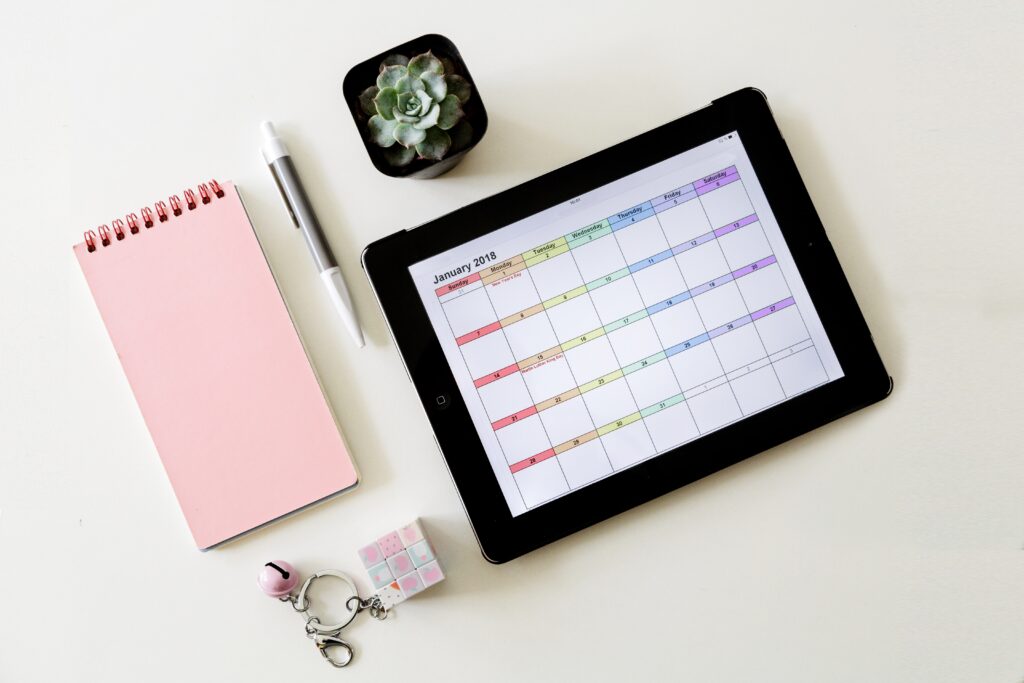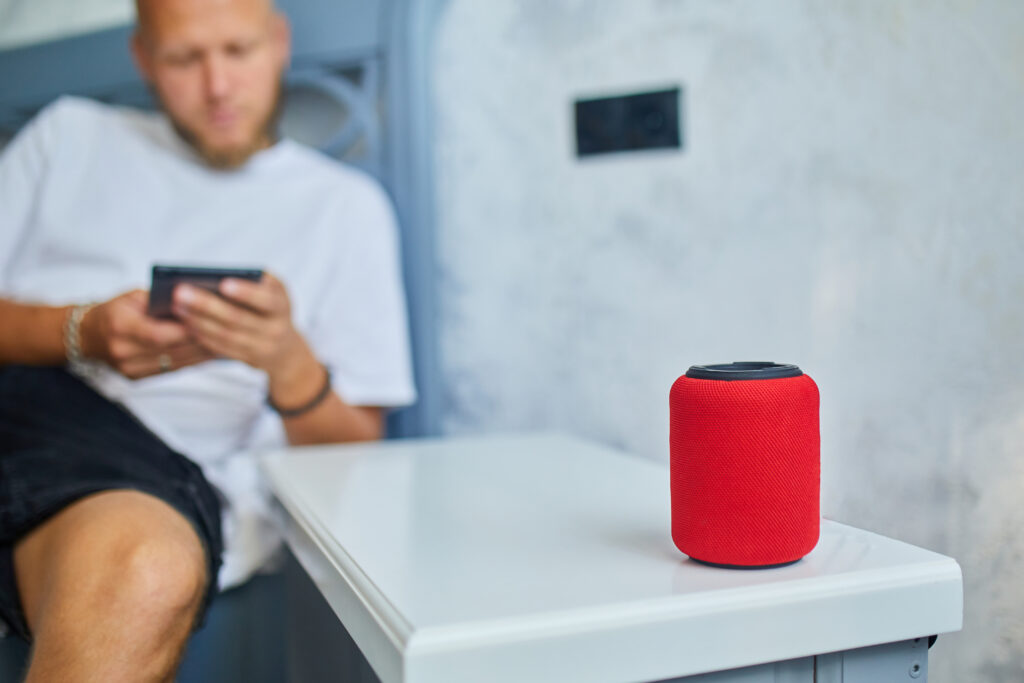Young adults with autism often face unique challenges in communication, organization, and social interactions. As a specialist in autism diagnosis and treatment, I’ve seen firsthand how the right technology can make a world of difference. One of my patients, a 15-year-old named Jacob, struggled with keeping track of his school assignments and managing daily tasks. With the help of assistive apps and smart devices, Jacob became more independent and confident in his abilities.
Studies show that about one in 36 children in the U.S. is diagnosed with autism spectrum disorder (ASD). As these children grow, they often need additional support to develop life skills, manage their emotions, and improve their communication. Technology aids for young adults with autism can serve as powerful tools to help them transition into adulthood with greater ease.
From wearable devices that reduce sensory overload to apps that enhance social skills, innovative technology is revolutionizing autism support. Here are seven must-have technology aids that can help young adults with autism gain independence and thrive in everyday life.
1. Visual Scheduling Apps – Helping Young Adults Stay Organized

Many young adults with autism struggle with executive functioning, which includes planning, organizing, and time management. This can make it challenging for them to follow a routine, complete homework on time, or transition between activities smoothly. Visual scheduling apps provide a structured, easy-to-follow system that helps young adults plan their day in a way that is visually engaging and intuitive.
Recommended Apps:
- Choiceworks – Uses visual schedules and timers to help young adults manage daily activities.
- Visual Schedule Planner – Allows users to customize schedules with images, colors, and alarms.
- First Then Visual Schedule – Helps break tasks into smaller steps to make them more manageable.
These apps allow young adults to see their daily tasks in a visual format, reducing anxiety about what comes next and reinforcing consistency. Many of these apps also have audio cues and step-by-step instructions, making them especially helpful for individuals who process information better through pictures rather than words.
2. Noise-Canceling Headphones – Reducing Sensory Overload
Many young adults with autism experience sensory sensitivities, which can make everyday environments—such as schools, shopping centers, and public transport—overwhelming. Loud noises, bright lights, and crowded spaces can lead to sensory overload, which may cause anxiety or meltdowns.
Noise-canceling headphones can be a lifesaver by blocking out background noise and creating a more calming environment. They help young adults focus better, feel more comfortable in stressful situations, and avoid sensory triggers.
Recommended Brands:
- Bose QuietComfort 45 – High-quality noise cancellation, comfortable for long wear.
- Sony WH-1000XM5 – Adaptive sound control that adjusts to different environments.
- Loop Earplugs – A more discreet option for young adults who prefer something smaller than headphones.
For young adults who struggle with noisy classrooms, these headphones can significantly improve focus and concentration, making it easier to learn without distractions.
3. Communication Apps for Nonverbal Young Adults – Enhancing Expression and Interaction
For young adults who are nonverbal or have limited speech, communicating their thoughts and emotions can be difficult. This can lead to frustration, social isolation, and misunderstandings. Augmentative and Alternative Communication (AAC) apps provide a lifeline for nonverbal young adults by allowing them to communicate using symbols, text-to-speech features, and customizable word banks.
Recommended Apps:
- Proloquo2Go – Offers customizable buttons for communication through pictures and symbols.
- TouchChat HD – Allows users to build sentences and use voice output for conversation.
- Avaz AAC – Helps users with autism improve communication with intuitive picture-based messaging.
These apps allow young adults to express their needs, thoughts, and emotions more easily, promoting greater independence and confidence in social interactions. Some apps also include predictive text and voice synthesis, making it easier for young adults to engage in real-time conversations.
4. Social Skills Training Apps – Teaching Communication and Interaction
Social interactions can be confusing and overwhelming for young adults with autism. They may struggle to understand facial expressions, interpret tone of voice, or respond appropriately in conversations. Social skills training apps use interactive games, role-playing scenarios, and visual storytelling to teach these important skills.
Recommended Apps:
- Peppy Pals – Teaches emotional intelligence through interactive stories and fun games.
- Social Detective – Helps young adults recognize emotions and social cues in real-life scenarios.
- ConversationBuilder – Encourages proper conversation structure through guided exercises.
By using these apps, young adults can practice social situations in a stress-free environment, boosting their confidence and helping them apply these skills in real-life situations.
5. Smart Home Assistants – Promoting Independence

Devices like Amazon Echo (Alexa) and Google Nest Hub can help young adults with autism gain independence in their daily routines. These smart assistants can provide voice-activated reminders for medication, school assignments, therapy appointments, and personal hygiene tasks.
Key Benefits:
- Hands-free assistance for scheduling and organization
- Step-by-step instructions for daily activities
- Access to calming music or guided relaxation exercises
For parents, these devices can also be set up with custom reminders and safety alerts, ensuring that their child stays on track throughout the day.
6. Wearable Safety Devices – Providing Peace of Mind
Many young adults with autism experience wandering or elopement, which can be a safety concern. Wearable GPS tracking devices provide real-time location updates to caregivers and parents, ensuring that the child remains safe.
Recommended Devices:
- AngelSense GPS – Provides live tracking, geofencing, and two-way voice communication.
- Jiobit Smart Tag – Compact and discreet GPS tracker with smartphone alerts.
- Apple AirTag – Can be attached to a backpack or clothing for easy location tracking.
These devices help caregivers quickly locate their child if they wander off, offering peace of mind and additional safety.
7. Apps for Emotional Regulation – Managing Stress and Anxiety
Young adults with autism often struggle with emotional regulation, which can lead to anxiety, meltdowns, or difficulty coping with changes. Emotional regulation apps provide guided exercises, mindfulness techniques, and coping strategies to help young adults manage their emotions.
Recommended Apps:
- MoodMission – Provides activities tailored to help users manage stress.
- Breathe, Think, Do with Sesame – Teaches problem-solving and relaxation skills through interactive exercises.
- Headspace for Kids – Offers guided meditation and mindfulness techniques.
By using these tools, young adults can develop healthier coping mechanisms and become more aware of their emotional states.
Key Takeaways
Technology aids for young adults with autism provide essential tools to help them overcome challenges in organization, communication, and social skills. From visual scheduling apps that assist with daily routines to noise-canceling headphones that reduce sensory overload, these tools empower young adults to navigate the world with greater ease. Whether a young adult struggles with speaking, making friends, or managing emotions, there is a technology solution designed to meet their needs.
By integrating these assistive tools into daily life, young adults with autism can become more independent, confident, and socially engaged. The right technology can reduce anxiety, improve focus, and help young adults communicate effectively with those around them. As technology continues to evolve, it will play an even greater role in supporting the unique needs of individuals on the autism spectrum.
How Can New Directions for Young Adults Help You?
At New Directions for Young Adults, we specialize in helping young adults with autism transition to independent living. Our structured programs offer personalized support, life skills training, and social development opportunities to help young adults thrive. We provide a nurturing environment where young adults receive guidance from experienced professionals who understand the unique challenges of autism.
If your child struggles with daily routines, social interactions, or independent living skills, we can help them gain the tools and confidence they need for success. Located at 3275 W Hillsboro Blvd #110, Deerfield Beach, FL 33442, our team is dedicated to empowering young adults on the autism spectrum. Call us today at (954) 571-5102 to learn more about how we can support your child’s journey to independence!
Frequently Asked Questions
1. Are there low-tech assistive tools that can benefit young adults with autism?
Yes, low-tech tools like communication boards, visual schedules, and adapted writing utensils can aid in daily communication and organization for young adults with autism.
2. How can virtual reality (VR) be used to support young adults with autism?
VR systems can create controlled environments where young adults with autism can practice social interactions and develop gaze fixation abilities through engaging activities.
3. Are there any web browsers tailored for individuals with autism?
Yes, ZAC Browser is designed specifically for children and young adults with autism, offering a simplified and safe online experience.
4. Can robots assist in the education of young adults with autism?
Humanoid robots like NAO have been used in classrooms to engage students with autism, enhancing their focus and participation through interactive activities.




